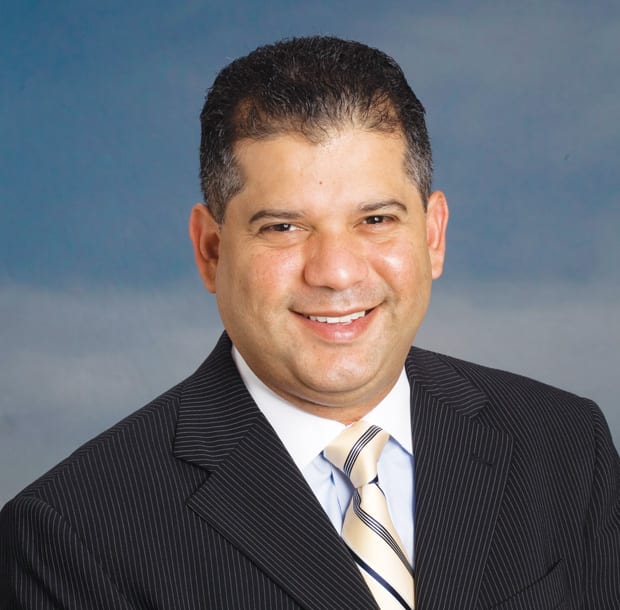New position works across the hospital system and county to achieve results
By James Russell | Staff Writer
Ildemaro Gonzalez has only been in his role as the new chief diversity officer at Parkland for a couple of weeks, but he already has what he describes as “purple pride.”
For the Venezuelan native, promoting institutional diversity comes easy. His previous jobs include similar positions at the
American Cancer Society and Newell Rubbermaid. But his position at Parkland has an added component, he said, given a deeply personal hospital experience that occurred when he first immigrated to the United States.
Not long after Gonzalez, his wife and son immigrated in 2001, his wife delivered their daughter prematurely. Living in Atlanta at the time, he was amazed by the hospital staff’s treatment of its patients.
“I noticed the equity in the care they provided. The man across from us had no money and didn’t speak English, but they still treated him like they treated us,” he said. “My experience was different in Venezuela, where people were treated more based on what they could afford.”
That experience had a strong enough impact that Gonzalez was prompted to apply for the new Parkland role. “12 years later, I’ve come full circle,” he said.
He’s not working from memory or nostalgia alone, but building on a solid foundation. “My position may be new,” he emphasized, “but the hospital’s focus on diversity isn’t.”
Before Gonzalez was hired in early August, the hospital system worked across divisions to fulfill its mission of working with all patients and employees. Even so, the system’s new president, Dr. Frederick P. Cerise, who began in March, saw the need for someone to coordinate those efforts.
The chief diversity officer is based in the talent management office, which focuses on “the life cycle of the employee.” But it expands beyond just internal relations.
Gonzalez sees employees as ambassadors, too, and as an integral part of a unified system impacting patients, employees and the larger community. Enhancing community outreach both at the main campus and in each of the system’s clinics is crucial to guaranteeing equity within the system.
“I’m building an aligned strategy” enhancing the relationship between the patient and provider, as well as the system’s relationship with each community it serves, Gonzalez said.
From his experience, “A workplace where everyone fully participates and 100 percent of ‘me’ comes to work creates a great opportunity to leverage the cultural differences that exist. When everyone is at 100 percent, we can also incorporate them in the protocols for care.”
In short, a happy employee is a happy patient. When an institution is staffed with a culturally competent workforce who understand the nuances of communities and individuals, it creates an environment where everyone feels comfortable participating. That also requires recognizing the role of a diverse work force, as well as incorporating all perspectives, including the LGBT community, Gonzalez said.
“We need to ensure LGBT employees have access to leadership, networking opportunities and benefits. We should afford these resources to all employees,” he said.
Gonzalez talked enthusiastically about Parkland’s role in the upcoming Alan Ross Texas Freedom Parade, Dallas’ annual Pride parade, suggesting the hospital’s presence in the parade may even grow in coming years.
There’s just one obstacle he has to overcome, he said.
“I don’t even have business cards yet!”
This article appeared in the Dallas Voice print edition August 29, 2014.
















